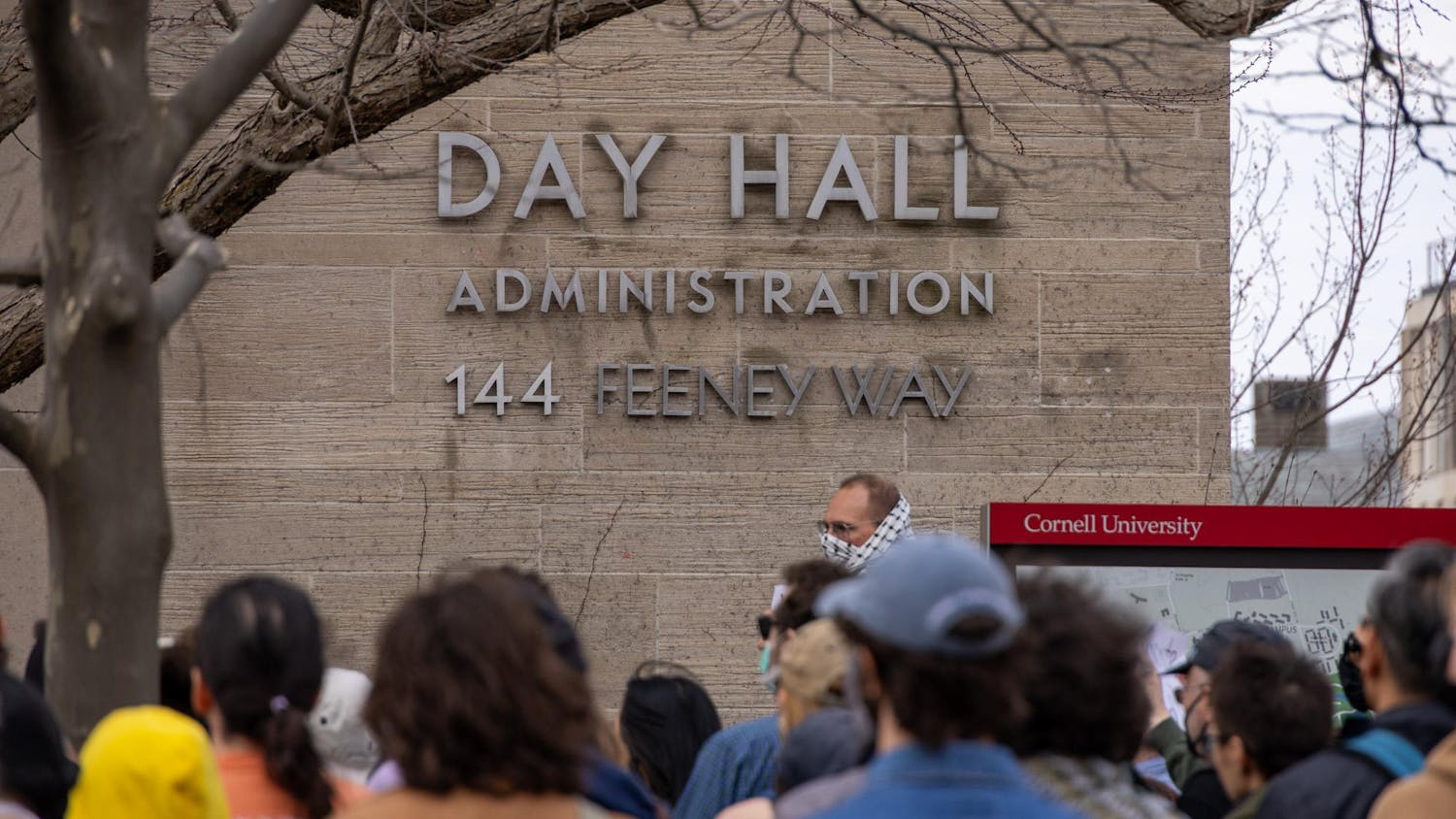When Student Assembly president-elect Joe Anderson ’20 first tried his hand at student government, running in the fall of his freshman year for S.A. undesignated at-large representative, he lost.
Now, three years later, Anderson is currently executive vice president of the Assembly, poised to take on the role of Student Assembly president — the highest office in student governance at Cornell. Given next year’s status as a byline funding year, the role will also have a significant impact in shaping the future of funding for many organizations.
As the clock tower bells chimed over a sunny Arts Quad, Anderson sat down with The Sun to talk about presidential victory, funding reform, administration on campus and his vision for the Assembly’s role in it all.
Anderson’s “first priority” is navigating the next byline funding cycle, when Assembly members will decide the allocation of the Student Activity Fee to byline-funded organizations like the Convocation Committee, SAFC and the International Students Union. The activity fee is the mandatory fee that all 15,000 of Cornell’s undergraduate students pay — an estimated $3.5 million pot.
In the past, deliberations on spending have been plagued by controversy: during the last byline funding cycle in the fall of 2017, the Assembly — spearheaded by former S.A. vice president of finance Gabe Kaufman ’18 — infamously voted to withdraw all funds from the Cornell Cinema.
The Cornell Cinema has not applied for byline funding in the upcoming cycle.
“I think I really want to change [the process], so it isn't as combative as it has been in the past,” Anderson told The Sun. “I think we shouldn’t be a very constraining or policing funding model. I think we really need to be helping these organizations really grow.”
But for most students, who might be more interested in just getting $1,000 for their club’s next event, Anderson also has plans in the works — he wants to reform the Student Activities Funding Commission, whose nearly $1.5 million annual budget funds over 500 of Cornell’s registered undergraduate organizations. As it is now, SAFC’s appeals process is “putting strain” on other byline organizations like ALANA and ISU to provide emergency funds to clubs and organizations, according to Anderson.
“In the past, the Student Assembly has not funded SAFC at the amount they requested, and that has been making it harder to fund every student organization under SAFC,” Anderson said.
During the last funding cycle, SAFC received approximately $1,487,836, more than $30,000 less than its requested amount of $1,518,200.
In response to concerns that giving byline organizations their full requested amount might mean a higher student activity fee, Anderson conceded that that might be the case. However, a higher fee will not be a problem for most, he said.
“If you look at our peer institutions, our student activity fee is kind of low,” Anderson told The Sun. “[The fee is] covered by financial aid; it’s not going to harm a lot of students who are on financial aid.”
According to the Yale College Council, the average student activities fee or equivalent fee at other Ivy League schools is $159.57. Cornell’s was $234 for the 2018-2019 school year.
SAFC’s funding application and appeals process is notoriously difficult. At the second to last S.A. meeting of the semester, representative for the College of Human Ecology Omar Din ’19 decried the stringency of SAFC rules, citing his experience working with Cornell Bhangra to get funds.
According to Anderson, the frustration of student organizations is exactly why the process should be changed.
“I really want the appeal model to be based less on bureaucracy, less ‘did you follow the rules?’ and more off of ‘how can we get you a portion of your budget,’ even if you made a small bureaucratic mistake,” Anderson said.
The president-elect’s other proposals for improving SAFC include more administrative support – there currently is one dedicated staff member – easier workloads for SAFC student commissioners, multiple waves of funding with staggered deadlines throughout the semester and a simpler appeals process.
Also on the list of issues to tackle is housing, or the lack thereof, another hot-button issue that has long besieged Cornell students.
On the planned North Campus expansion project, Anderson, a current resident advisor in Cascadilla Hall and former president of Residential Student Congress, wants to “continue pushing” for more student involvement in the expansion. He especially wants to make sure administration hears students frustrated by the construction — which won’t be complete until the fall of 2022, according to the Office of Student and Campus Life.
In general, Anderson wants to make it possible for regular students to get to know the administration — starting with getting administrative leaders like deans “out” of Day Hall and interacting with regular students, not just student leaders.
“I really want to open up the lines of communication,” Anderson told The Sun. “How can we really get [administrators] to see this bigger process? Because right now, the burden is on student leaders to represent every students' experience.”
This, Anderson said, is the kind of precedent he hopes to set for the incoming Assembly.
“How can you as an assembly member be championing those small individual student-to-student concerns?” said Anderson. “That's a model I really want to pursue on the Student Assembly.”
Sean O’ Connell ’21 contributed reporting to this article.

From Unsuccessful Candidate to President-Elect, Joe Anderson '20 Has Big Plans for the Student Assembly
Reading time: about 5 minutes
Joe Anderson '20 speaks at the Student Assembly meeting on April 11th, sitting between Student Assembly president Varun Davatha '19, left, and S.A. vice president of finance Dale Barbaria '19, right.
Anderson, right, and Devatha look on as President Martha Pollack speaks at the S.A. meeting on August 23rd, 2018.
Read More










